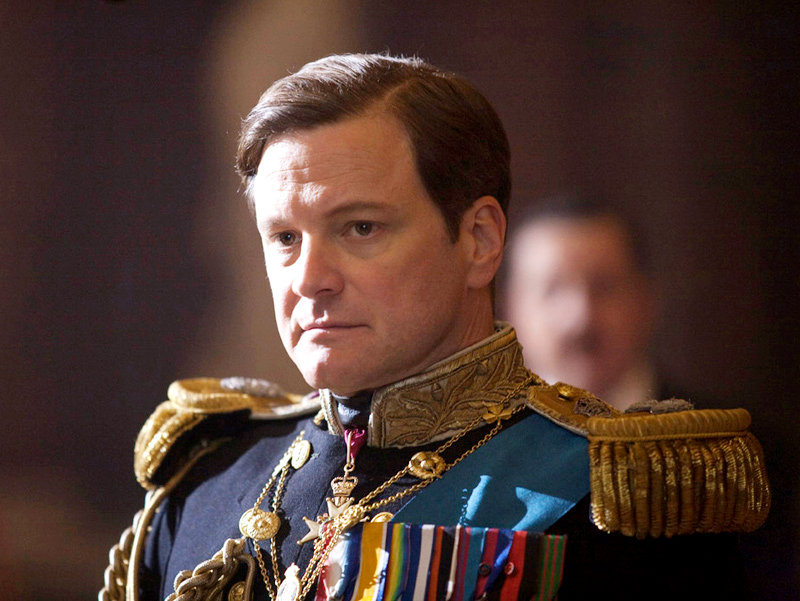Colin Firth Loses His Voice, and Finds it Again

COLIN FIRTH IN THE KING’S SPEECH
FILM STILL COURTESY OF WEINSTEIN CO.
Though he started out as a Jane Austen leading man in Pride and Prejudice, Colin Firth has made a name for himself in the last decade playing characters a bit more complicated than the literary dreamboat. His hard work paid off last year with his first Oscar nomination for A Single Man, which showed Firth as a professor destroyed by heartbreak. In his new film, The King’s Speech, Firth plays King George VI as he rises to power after the unexpected abdication of his brother on the eve of World War II—all while fighting a crippling stammer.
While Firth is a born and raised Brit, his knowledge of the time period and the royals were lacking. “I started from knowing nothing, absolutely nothing about this family at all,” he explains. Without access, Firth was forced to observe what he could when he could. “You don’t really get to hang out with kings; they don’t hang out with people and they don’t consult on movies. [But] I have met Prince Charles, and it’s interesting [because] I didn’t find anything out about him—this man’s job is to be on duty all the time.” Rather than get inspiration from Prince Charles, the grandson of the man he was playing, Firth watched those surrounding the future King. “What I [learned] from that was how everybody behaved around him. A few people who I thought were anti-monarchist suddenly became extremely respectful… I certainly realized that must be how you see the human race—that’s the world for you.”
While Firth is the epitome of articulate grace, as King George VI he was forced to affect the debilitating stutter that is the linchpin of the film. Although it was his third role with a speech impediment, Firth initially found himself at a loss at how to approach it. “I don’t know how we got to any of it, frankly,” he said. “It was different every time—it’s applied differently, it’s a different guy, he has a different dialogue, different issues, he has different ways of dealing with things because he’s a different person. So none of it helped.”
In addition to the mechanics of the speech impediment, Firth had to take into account how his voice would affect the film itself. “If it was too much, if it was too painful, the risk is that it alienates people… And also, the film has to have a pace to it, I mean you’re going to have to get to the end of ninety minutes—we haven’t got all day!” Perhaps most surprisingly was the physical toll it took on Firth. “It became very visceral. I got headaches. I thought ‘Wow, if this is a person that really has to fight to talk, then that’s what they’re going through.’ They probably have to fix their neck and back muscles on a regular basis, that’s how much of a fight it is.”
With the Oscar horse race already gearing up, many have already pegged Firth for a second nomination for Best Actor. Like any good sport, Firth does his best to laugh off the buzz. “People using that kind of language is basically code for, ‘This is a really good movie for more people than you might think.'”
THE KING’S SPEECH IS OUT NOVEMBER 26.






